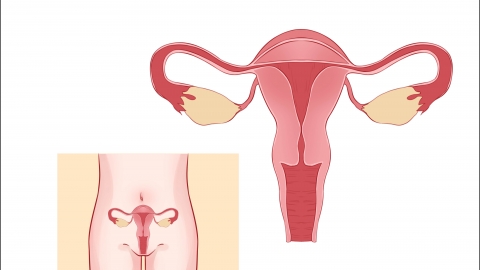What are the effects of ovarian enlargement?
Ovarian enlargement may affect the menstrual cycle, cause abdominal discomfort, interfere with normal ovulation, increase the risk of torsion, and indicate underlying diseases. The specific impacts vary depending on the cause and degree of enlargement, so it's important to promptly identify the underlying cause. If symptoms such as severe abdominal pain or abnormal bleeding occur, immediate medical attention is recommended.
1. Menstrual cycle disruption: Ovarian enlargement may disrupt endocrine balance, leading to menstrual irregularities such as irregular cycles, excessive or scanty menstrual flow, and prolonged periods. This is commonly seen in conditions like polycystic ovary syndrome (PCOS).
2. Abdominal discomfort: Enlarged ovaries can stretch surrounding tissues or compress pelvic organs, causing a sensation of heaviness or dull pain in the lower abdomen. If accompanied by fluid accumulation or inflammation, discomfort may worsen, especially after physical activity.

3. Interference with normal ovulation: Structural abnormalities in the ovary can impair follicular development and release, potentially causing ovulatory disorders. This may manifest as difficulty conceiving or infertility, and in some cases, may be associated with luteal phase deficiency.
4. Increased risk of torsion: As ovarian volume increases, its mobility also increases. During vigorous exercise or sudden changes in body position, ovarian torsion may occur, leading to acute abdominal emergencies that require urgent medical intervention.
5. Indication of disease: Ovarian enlargement may signal an underlying condition such as ovarian cysts, polycystic ovary syndrome, ovarian inflammation, or tumors. Different causes have distinct implications and require different treatment approaches.
In daily life, avoid strenuous exercise, especially movements involving rapid twisting of the body. Maintain regular sleep patterns to minimize disruptions to the endocrine system from sleep deprivation. Eat a balanced diet and avoid excessive intake of high-sugar and high-fat foods. Regular gynecological examinations are also recommended.




